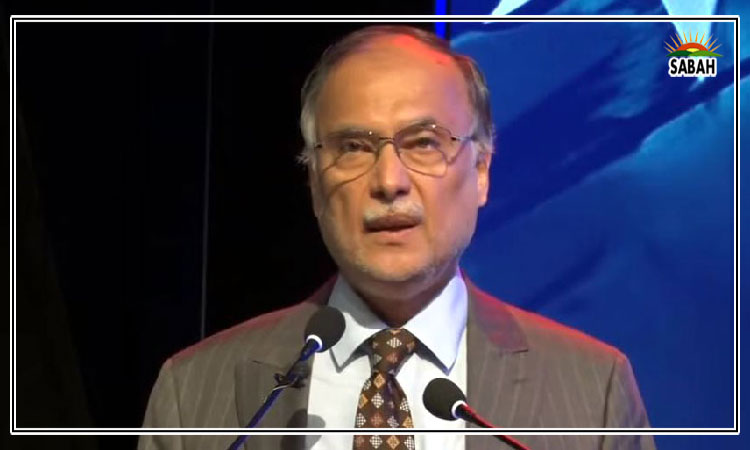Quaid-e-Azam’s Legacy: A Testament to True Leadership by Muhammad Mohsin Iqbal
The making of a true leader is an arduous journey, requiring clarity of thought, unwavering integrity, and unmatched perseverance. In history, there are rare individuals whose words and actions leave no ambiguity about their character and vision. Muhammad Ali Jinnah, later known as Quaid-e-Azam, stands as a shining example of such a leader. His struggle, sacrifices, and principles were not mere rhetoric but a practical demonstration of leadership. Muhammad Ali Jinnah earned the title of “Quaid-e-Azam” not by chance but through years of relentless effort and by proving that he was the only person who could command such respect and trust from his people.
Born on December 25, 1876, in Karachi, Jinnah began his professional journey as a brilliant lawyer. His rise to prominence was not an accident but the result of his commitment to hard work, honesty, and legal acumen. Early in his career, his character was already evident. He always refused to compromise his professional ethics despite financial pressures. His reputation as an upright lawyer who could not be bought or swayed earned him respect among his peers and society.
Jinnah’s transition into politics was driven by his desire to secure justice for Indians under British rule. Even when he joined the Indian National Congress, he was known for his balanced views and statesmanship. His speeches were marked by precision and clarity, leaving no room for ambiguity. Muhammad Ali Jinnah’s opposition to ill-considered measures such as the Rowlatt Act of 1919 exemplified his commitment to justice. This act allowed the British to imprison people without trial, and Jinnah stood firmly against it, demonstrating his unyielding resolve to defend fundamental human rights.
However, it was during the 1920s and 30s that Jinnah’s character truly shone. Faced with the growing communal divide and the rise of extremist narratives, Jinnah refused to compromise on his principles. His resignation from the Congress after Gandhi’s non-cooperation movement underscored his belief in constitutional struggle rather than emotional and violent means. Muhammad Ali Jinnah believed in achieving political goals through legal and democratic avenues, showcasing his deep respect for rule of law.
By the mid-1930s, Jinnah had emerged as the undisputed leader of the Muslim community. Yet, the title of “Quaid-e-Azam” was not conferred upon him overnight. It was his tireless efforts to secure the rights of Muslims that earned him the respect of millions. The example of the 1940 Lahore Resolution remains a defining moment in this regard. On March 23, 1940, Jinnah addressed the All-India Muslim League at Minto Park, Lahore, presenting the case for a separate homeland for Muslims. His words were clear, his arguments were logical, and his vision was compelling. He articulated the need for Pakistan with such clarity that it left no room for doubt in the minds of his followers. His powerful leadership during this time won him the title of Quaid-e-Azam, meaning the “Great Leader.”
Quaid-e-Azam’s character was tested repeatedly, but he never wavered. A significant historical example was his role in the Cabinet Mission Plan of 1946. Despite immense pressure, Jinnah stayed firm on his demand for Pakistan, knowing it was the only viable solution to safeguard Muslim identity. His calm demeanor and strategic brilliance during negotiations highlighted his qualities as a leader who prioritized the collective good over personal ambition. It was during these years that his followers saw a man of impeccable character, whose words matched his actions.
Another remarkable trait of Jinnah’s leadership was his simplicity and modesty. Despite his towering stature, he maintained a lifestyle that reflected humility. In one instance, during the partition in 1947, Jinnah traveled to Karachi on a commercial flight instead of a private one, reflecting his commitment to serving his people rather than indulging in personal luxuries. Even as the Governor-General of Pakistan, Jinnah chose to live in a modest house instead of the grand Governor’s residence, underscoring his character and dedication.
Quaid-e-Azam’s clarity of words and strength of character were further evident in his address to the Constituent Assembly of Pakistan on August 11, 1947. He stated unequivocally that religion was a personal matter and that every citizen of Pakistan would enjoy freedom and equality. This speech remains one of the most significant documents in Pakistan’s history, as it encapsulated his vision for a progressive and inclusive nation.
Jinnah’s final years were marked by ill health, yet his resolve never weakened. In 1948, despite being critically unwell, he continued to work for the nascent state of Pakistan. On July 1, 1948, while inaugurating the State Bank of Pakistan, Jinnah emphasized the need for Pakistan to develop its own economic system based on Islamic principles rather than imitating others. His speech reflected his foresight and his commitment to building a strong and independent nation.
Muhammad Ali Jinnah’s life is filled with countless examples of integrity, determination, and selflessness. Whether it was his steadfastness in the face of opposition, his belief in constitutional means, or his unmatched leadership during the struggle for Pakistan, Jinnah proved time and again that he deserved to be called Quaid-e-Azam. His clarity of words and strength of character left no ambiguity about his intentions and values. As his birthday anniversary approaches on December 25, it is imperative to remember and reflect on the principles he upheld. Pakistan was not merely the result of political maneuvering but a testament to the character of a leader who embodied honesty, courage, and vision. It is through such examples that we understand the true essence of leadership.
Today, as we face numerous challenges, the life of Quaid-e-Azam serves as a guiding light. His character reminds us that leadership demands sacrifice, integrity, and unwavering commitment to one’s cause. The search for such leaders continues, but Jinnah’s legacy remains unparalleled, inspiring generations to come.












